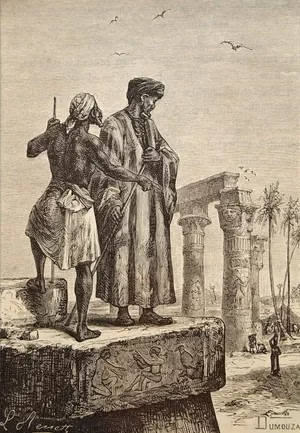Ibn Battuta: The Morrocan Explorer
Did you know that a Muslim scholar and personality traveled over 75,000 miles (120,000 km) during his lifetime, equivalent to circling the Earth about 3 times?! Yes, I know that’s a lot. Many of you might have heard of the name, ‘Ibn Battuta’.
Brief introduction
He was the greatest medieval Muslim explorer and traveler, who was born on 24 February in Tangier, Morocco, in 1304. His famous book Rihlah was a travelogue of Ibn Battuta, in which he jotted down his insights and close observations on those places. Besides, he also faced some thrilling experiences and dangers, which he discusses in his book. He was also a scholar who had expertise in Islamic theology as well.
Early life
Ibn Battuta was from a family where a lot of judges (Qadis) were used to produce. He got his early education in juristics from his hometown, Tangier. He started his voyage to get more Islamic education and to perform Pilgrimage (Hajj). There he extended his journey from Mecca to various other places but returned to Mecca. At this point, the 21-year-old determined that he won’t be back until 24 years.
Some Of His Fantastic Travels
At that time, there was no other means of transport except by land. Ibn Battuta began his travels, passing through Cairo, Jerusalem, and Damascus. After completing Hajj, he embarked toward places to the north, mainly Iran and Iraq, or the Persian side, and then to Turkey. After some time in Makkah again, he ventured forth to Yemen by boat from Jeddah. His next target was the Swahili coast, covering Somalia, Tanzania, and Oman. He returned to perform another Hajj.
His next goal was the heart of Asia. He crossed Anatolia, reached Istanbul, and continued along the Black Sea until he arrived in the Byzantine Empire. He documented incidents from different places in his travelogue. He then turned toward Central Asia, following the Russian route. His journey included visits to the ancient cities of Samarkand and Bukhara. Later, he advanced toward Afghanistan, crossed the mountains of Hindu Kush, and finally reached India.
His Experience In India And Afterwards
He wanted to try his fortune by serving in the court of a generous Indian ruler. With luck, he got to serve 8 years as a Qadi in Delhi while welcomed with a lot of wealthy presents. He then continued his journey while passing through Indonesia, Maldives, Philippines, and so on reaching China.
His Returning Journey
In 1346, Ibn Battuta marked his journey back while using routes from Damascus and Mecca to his home Morocco. He reached his hometown in 1349, to find out that his father died 15 years ago and his mother died some months before his return. After some more brief travels, he lived the rest of his life in Morocco as a judge.
Lessons for Young Muslims
Ibn Battuta’s story is not just about traveling—it’s a powerful reminder of how Muslims are encouraged to seek knowledge and explore the world. The Qur’an says:
“Travel through the land and observe how He began creation.” (Qur’an 29:20)
This verse calls upon us to explore and reflect on the vast world created by Allah, not just for personal enjoyment but to learn, grow, and contribute to society. Ibn Battuta’s journey was driven by curiosity, courage, and his desire to better understand the world and its people. He didn’t wait for opportunities to come to him; he stepped out of his comfort zone and trusted Allah to guide his way.
As young Muslims, there’s a lesson here for you. Whether in science, technology, art, or community service, your journey can leave a mark, too. Take inspiration from Ibn Battuta—be bold, seek knowledge, and strive to make a difference.
“Indeed, Allah will not change the condition of a people until they change what is in themselves.” (Qur’an 13:11)
The world needs your efforts. Start your own journey today.
Sources
Picture taken from, https://www.britannica.com/biography/Ibn-Battuta
Login required to like


